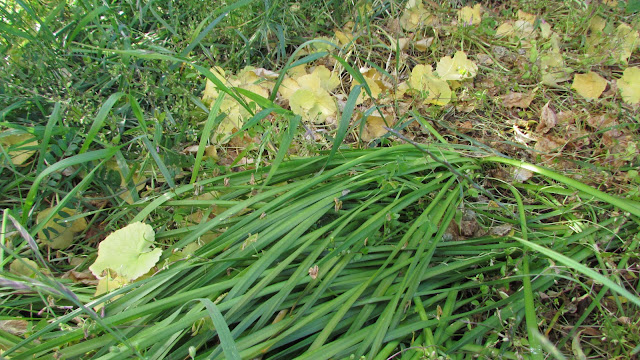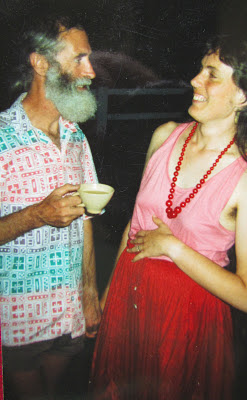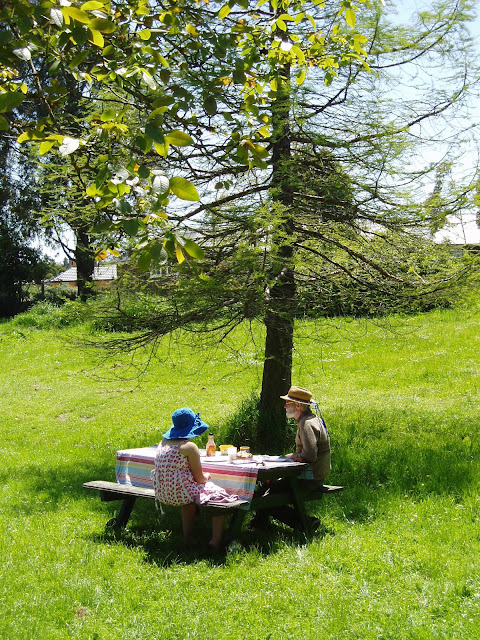Be Good
“Behave yourselves, you kids,” said
Dad carrying an oven tray full of jam jars to the kitchen bench. They were hot, straight out of the coal
range, sterile and ready to swallow jam.
Dad didn’t want to burn a child and he didn’t want to drop the jars.
“Shoo, get out of the kitchen
now. You can fill the wood bin up if you
like.”
It was called a coal range but they
burnt wood on it, because they grew their own.
But that meant it needed a lot of attention to get the temperature up and
to keep it at a steady heat. Only Dad
could drive the range evenly enough to make sponges; only Dad could drive it
hot enough to bake scones. Mum cooked dinner on it - or in it, every day.
The kids fetched the firewood, making
a hut in the woodpile for a bit, before they remembered to load the wheel barrow. Then they heaved the lid off the box where it
nestled beside the chimney piece, and started throwing in the wood. Dad was pouring jam into jars, using a jug to
scoop the plummy pulp from the jam pan. The first block of wood hit the inside
of the wood box, which was also a little door into the kitchen, and the jam ran
down the outside of the jar as Dad jumped out of his skin.
That night Mum served roast
mutton and new potatoes, and the plum jam spoke with cellophane crackles in
ruby jars along the kitchen dresser.
“Did you take the stones out,” asked
Malcolm.
“No, I didn’t,” said Dad. “They are
just the little plums, it wasn’t worth it.”
“I probably won’t eat that jam
then,” Malcolm said. He was six and knew his own mind. Mum said, “You behave yourself or else…”
“But I think I will,” said Malcolm
remembering why he should eat jam with plum stones in it. “Can we have some on
our custard?”
“Tomorrow I’ll do the gooseberries.”
Dad was planning ahead. He could see the
pantry already; reaching past Christmas and into autumn, filling week by week,
with berried treasure, crimson kings and golden queens, black boys and bon
cretians; pears by halves and quinces reduced to jelly; stowed and glowing in
juicy shades of red and green and yellow.
They all picked the
gooseberries, even Mum, who kept saying she was too busy for preserving. Susan and Phillip were old enough to know the
ripe ones; red and stripy, but Malcolm bit into green ones and threw them down
in disgust.
“Hey, I need the green
ones. And the red ones. Behave yourselves.” And Dad pouted at the
kids. “Or else.” He had to remind them
again when they topped and tailed the stalks and dead flowers back into the
bowl with the gooseberries.
Then it was blackcurrant time. The days were getting hotter and so was the
kitchen, and the tempers that lived in it.
Mum kept out of the way. She was
too busy sewing in her sewing room. Dad
didn’t want to top and tail all the blackcurrants himself. It made his big fingers sore plucking away at
tiny stalks. “Many hands make light
work,” he hoped..
“Ooh there’s a red
spider on my hand,” wailed Susan. She flapped her hand and knocked her bowl of
currants over. Currants and spider mites ran away under the furniture.
“They smell funny,”
moaned Phillip.
Malcolm found out how
to get blackcurrants off their stalks all at once. He picked them off in
bunches with his teeth and spat them back into the bowl.
“Can we go swimming
Dad,” No, no, no, he thought. “Yes,” He
said, “I’ll just put some more wood on the fire.”
Dad spread the towels
on the warm stones and lay down to bask.
Long feathers of cloud stroked the hot sky and he thought it was nice to
have a break from the kitchen. Mum would
have some peace and quiet too to get a few things done at home. Children’s voices, river running, stones creaking
underfoot… Malcolm crying, “Daddy, Phillip’s
splashing me.”
“Phillip. Behave yourself.” Phillip was ten, and good at splashing. But he remembered that he’d much rather be
building a dam.
Mum had so much peace
and quiet that she got on with the blackcurrants and they were simmering on the
hob when the swimmers came home. That night there was bacon and egg pie and lettuce
and peas for dinner, and pints of black pearls cooling on the dresser. Some escaped their jar and turned red over rice
pudding.
Early next morning Dad
cleaned the coal range. Out to the garden with the ashes, then off with the hob
plates and the chimney plate too; into dark passages; rattle, rattle with his
rake, which was just a little slice of iron on a long handle; soot gathered with tenderness into the ash
pan… Dad was stirring the porridge when his children got up.
Mum moved the preserves
off the dresser and put them away in the pantry. Then she took a chook out of
the freezer and put it to thaw on a dish where the currants had been.
“I’ll take the kids to
fetch the milk,” Dad told Mum.
“Ah good,” and she
smiled the smile of conspiracy.
Malcolm thought it was a long way to
the milk. He wondered why they couldn’t just pick it up at the end of the road
the way Mummy usually did. Or why Daddy didn’t go and get it in the car, which
is what he did every weekend.
“It’s a nice day for a walk,” said
Dad, and showed them a real cave inside a fallen-over willow tree. “We can have a cuppa here,” he said. Let’s
put the jug on. Phillip giggled when Dad
plugged the jug in, but Susan found a cloth in a drawer and laid the
table. They all sat down and drank tea
from the finest Royal Albert cups and saucers, which Dad found on a shelf in
the cave.
“Ah,” said Dad, “Broken orange
pekoe. It doesn’t need milk at
all.” Which was a good job.
The milk lady had milked her cows
while Dad was cleaning the coal range, but she took them to see Daisy and
Buttercup. Malcolm thought that maybe buttercups
should be called cowcups because the cows were standing up to their knees in
them.
Dad gave the milk lady empty plastic
bottles and money and she gave him bottlefuls of milk. He put them in his old
rucksack and looked for the children.
They were all on the top rung of the dairy fence looking out at the cows
in the milk meadow, and chattering like starlings with the excitement of the
day.
“Hey, get off that fence. Behave yourselves.” Silence fell, and wide-eyed they dropped all
together and ran to him. The milk lady
dipped into her apron pocket for three striped candy canes and grinned at Dad.
“Or Father Christmas won’t come
tonight, will he kids.”























































